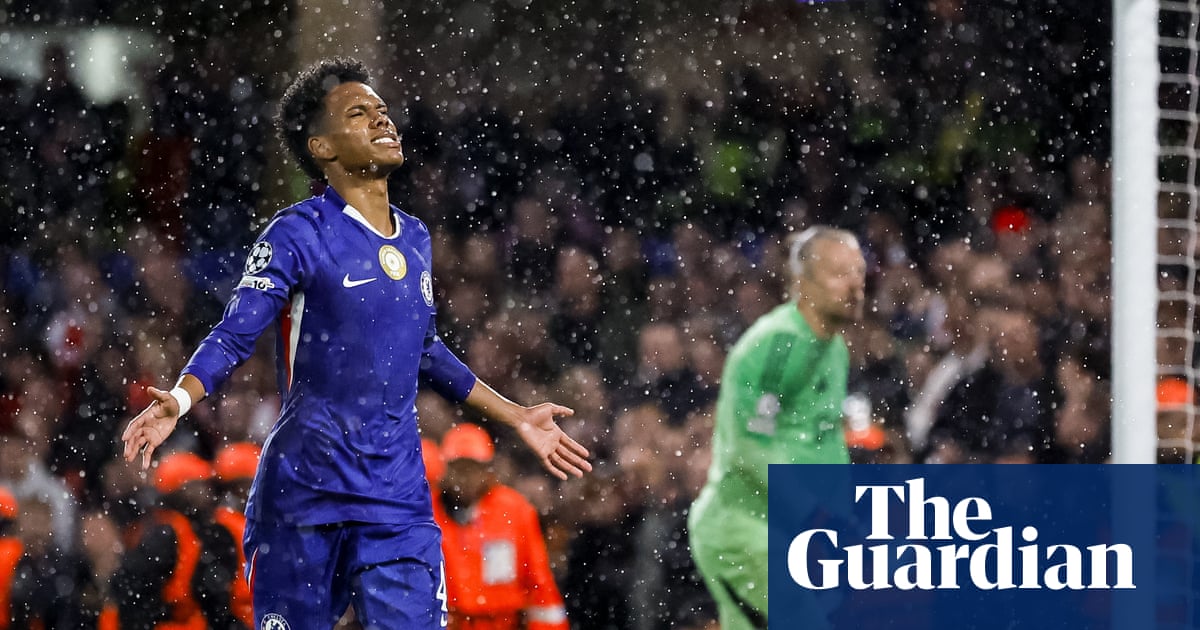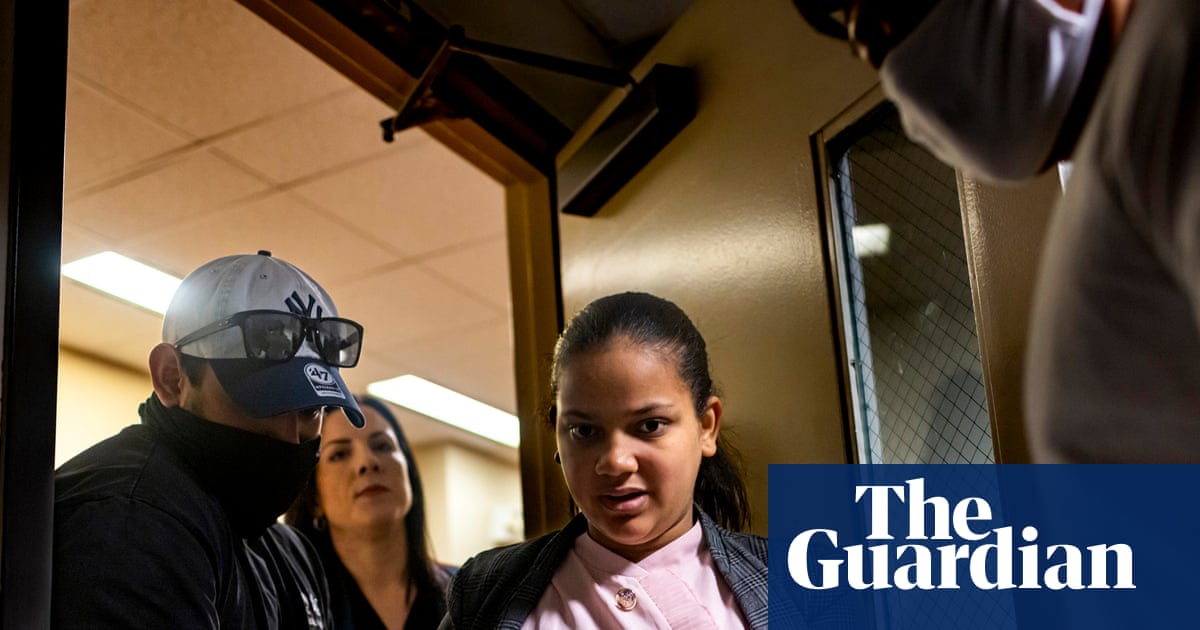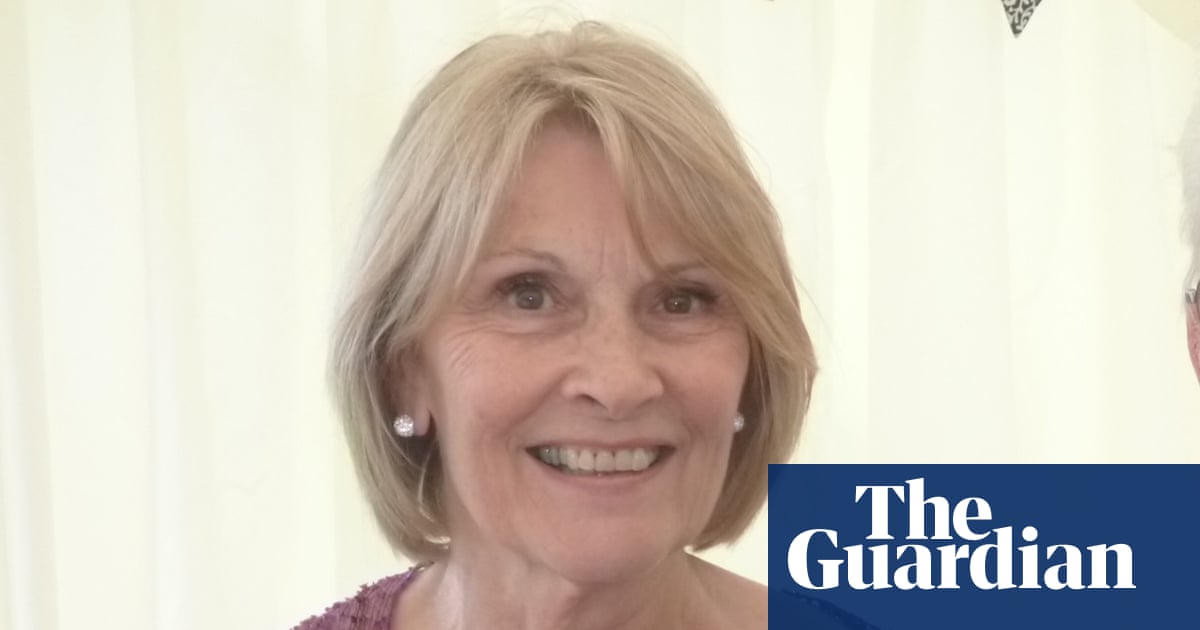The term “cosy crime” describes the reassuring, cardigan-swaddled whodunnits that currently dominate both page and screen, but it carries different connotations for Kelly Reichardt, director of the new heist movie The Mastermind, as it surely must for anyone from a law enforcement family. Reichardt’s mother was an undercover narcotics agent, her father a crime scene detective. When the couple split up, she also gained an FBI agent as a stepfather. During weekends with her dad, who moved into a house with four other recently divorced colleagues, she would sometimes be given mysteries to solve, like some kind of junior Thursday Murder Club.
“It sounds really cute,” says the 5ft-tall, 61-year-old director, whose film could not feel more timely, given the Louvre heist. “But I was only young, and I’d often wait for him at his office where there were these big horrific images on the walls. That’s not good for the forming brain. My sister and I have a joke now whenever one of us is upset, ‘Aww, get into bed and watch some crime, then you’ll feel better.’”
It’s no coincidence, then, that several of Reichardt’s movies have engaged with crime, from her 1994 debut River of Grass, in which two lovers go half-heartedly on the run after wrongly believing themselves to be murderers, to 2013’s Night Moves, starring Jesse Eisenberg and Dakota Fanning as ecowarriors who blow up a dam. Her enchanting 2019 masterpiece First Cow hinges on the most low-key heist imaginable: two early-19th century entrepreneurs stealing milk by moonlight for their fledgling doughnut business.
A more traditional robbery can be found in The Mastermind, though Reichardt’s handling of it is anything but conventional. Set in 1970 in Massachusetts and vaguely inspired by a real-life incident, the film stars Josh O’Connor as JB Mooney, a skulking deadbeat dad in flat cap and autumnal knitwear, who steals four abstract paintings from a small-town gallery.
In an allusion to Reichardt’s own upbringing, Mooney’s two young sons tag along on his assorted recces. “A big part of my childhood in Miami involved waiting around in cars with my mom,” she recalls, as we sit in this London hotel room. “My sister and I would have to lie down on the back seat while a suitcase was moved from one car to another. What I tried to get across in the film was that feeling when you’re not sure if what your parents are up to is kosher, and how confusing it is.”
On set, the director found herself coaching O’Connor and Alana Haim, who plays Mooney’s wife, in the art of early-1970s parenting, which was the antithesis of the helicopter variety. “Alana kept wanting to talk to the kids,” she laughs. “My God, she and Josh were obviously so adored by their parents! It must have been lovely.”
In another way, though, O’Connor fitted right into the era: pale and spindly, he has an authentic 1970s body rather than the buff physique of many of his contemporaries. “That played a big part in casting him,” Reichardt agrees. “Josh is a fantastic actor and an awesome human being and he also doesn’t have a gym body. That’s hard to find because men all want to be superheroes now. He’ll be thrilled to hear this, I’m sure.”
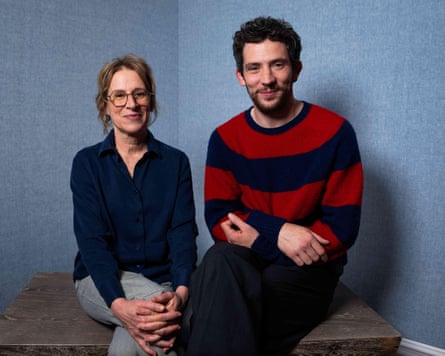
Droll and painstakingly observed, The Mastermind is not so much a heist thriller, Reichardt says, as a “coming-undone movie”. An off-kilter effect is achieved by moving the crime itself upfront. The robbery is done and dusted within the first half-hour or so, which is the equivalent, in curating terms, of hanging Van Gogh’s Sunflowers in the cloakroom. The remainder of the film chronicles the agonising aftermath of what passes for Mooney’s plan.
“When you have a plot, there are footprints to follow,” the director explains. “When you’re outside that, and you stop the plot to let the audience look and see, that can bring its own tension. I like filming the parts that are usually cut out of other movies.”
One example in The Mastermind is the scene of Mooney laboriously removing the stolen canvases from a wooden box, then carrying them – and, separately, the box – up a ladder into a hayloft, before inserting them back into the box. (Viewers resistant to slow cinema should count their blessings: Reichardt originally shot footage of Mooney making the box.) The scene is revealing precisely because it is so protracted, its bathos running counter to the usual swagger of cinematic crime.
Though she resists drawing connections between her work and whatever the current political climate might be, Reichardt concedes that they are hard to ignore in this case. “I tried to keep my head in 1970 and not think of the parallels but they obviously present themselves. I live in Portland, Oregon, where they’re fighting to keep the national guard out. The film is set in the year the national guard were on all these college campuses.” Most notorious was Kent State university, where the national guard shot dead four unarmed anti-Vietnam protesters and wounded nine. “Turning your federal military against your citizens,” she sighs. “That’s cool in 2025.”
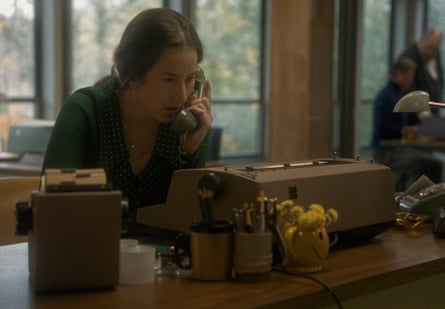
The Mastermind was shot in JD Vance’s Cincinnati neighbourhood during the last election, though Reichardt claims this didn’t actively impinge on the production. “We were in the bubble of making the film. Yes, the day after the election was a profoundly sad one. And then you just carry on because there’s so much to do.” Cutting the movie also insulated her once she got back to Portland. “I cut seven days a week because I did not want to re-enter the world. I was cutting on Christmas Day, New Year’s Day. I didn’t want to face the music.” How did she feel once she did? “Like I thought I would,” she says glumly. “It’s worse than ever, right?”
Her own career, though, has never looked more stable. After River of Grass, she spent 12 years in the wilderness, rebuffed at every turn while male peers surged ahead. “People would say very openly, ‘We’re not making women’s films.’” When she did land meetings in the 1990s, they didn’t always go to plan. She once told a Hollywood agent that she would only make her latest project if she could cast Warren Oates, the grizzled star of Sam Peckinpah’s The Wild Bunch. What she didn’t realise was that Oates had died a decade earlier. “There was no internet back then,” she protests. “I couldn’t Google him.”
During those fallow years, a friend wangled her some writing work on one series of the glossy reality TV show America’s Next Top Model. Was there anything from the experience that she took into her own film-making? “Christ, no!” she exclaims. She couldn’t look any more disgusted if I’d invited her to be a contestant on the show.
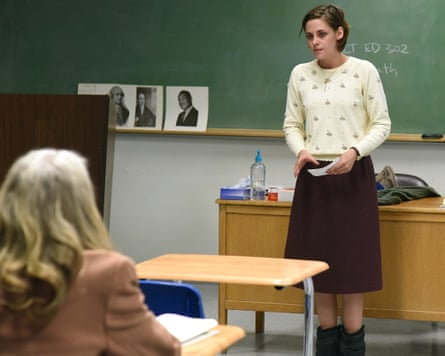
Today, Reichardt is a byword for wry, insightful and even profound film-making, and a magnet for the best actors in the business: one movie alone, the 2016 portmanteau drama Certain Women, starred Michelle Williams (with whom she has made four films), Kristen Stewart, Lily Gladstone and Laura Dern.
The director also keeps her hand in at Bard college in New York, where she has taught film for nearly 30 years. Back in 2014, she noted that her students were “not mad the way we used to be” and seemed “so un-angry … I don’t see much concern or interest”. It’s a complaint that resurfaces in The Mastermind, with Mooney oblivious to the social and political tumult of the era.
Reichardt reports that the situation with her students remains exactly as it was. “The time of being fearful or mad at ‘the Man’ is over. They all have phones and they’re not afraid of corporate power. They go off to work for tech companies and then they’re part of that company. So they’re not at odds with anything.”
Recently, she and a friend were explaining to a group of young people the concept of selling out. “They had no idea what the fuck we were talking about. They were like, ‘We just want to make money.’ Oh well. I guess they’ve got enough stacked against them.” Only once we have fist-bumped our goodbyes does it occur to me that there is an easy way to explain to gen Z the idea of selling out. It’s the thing Kelly Reichardt won’t do.

.png) 6 hours ago
4
6 hours ago
4
